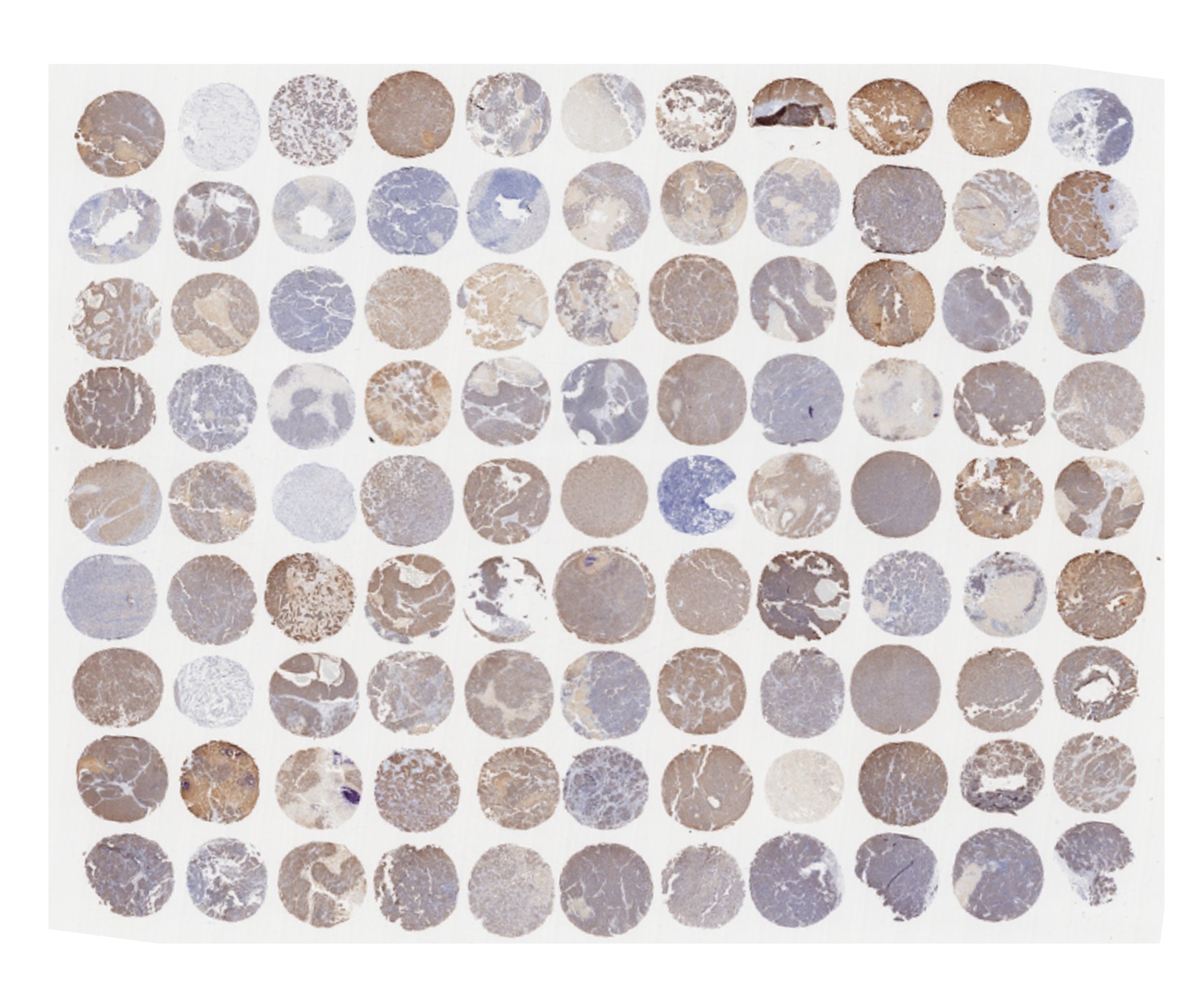Translational TMAs for Oncology Research
Accelerate biomarker discovery, validate targets, and benchmark therapeutic impact, all from a single, high-efficiency platform.
- Analytical Assays For Endpoint Data Collection
- Translational Tissue Microarrays (TMA)
Champions Oncology's Patient Derived Xenograft (PDX) Tissue Microarrays (TMAs) deliver more than static samples. They provide a functional starting point for integrated oncology research. By offering hundreds of PDX tumor cores per slide, our TMAs eliminate bottlenecks in early-phase validation and help scientists quickly identify which targets matter.

Why Choose Champions Translational TMAs?
-
Patient-Derived and Clinically Annotated: Assembled from our TumorGraft™ and , our TMA cores reflect Western clinical treatment history and come annotated with genomic and histopathologic data.
-
High-Content, Low-Variability Format: Each slide contains cores from a diverse patient cohort, reducing staining variability and enabling reliable IHC/IF analysis at scale.
-
Ready for IHC, and Multiplexing: Built on FFPE format, our TMAs are compatible with standard histology workflows and multiplex biomarker readouts.
-
Pipeline-Linked, Not Standalone: TMAs are directly traceable to Champions’ matched preclinical models, including PDX, and TumorGraft3D™ organoids, enabling immediate, functional follow-up.
Translational Value Beyond the Slide
Each array isn’t just a diagnostic snapshot, it’s a launchpad. When a marker or expression pattern is identified, Champions enables seamless progression into:
- Functional testing in TumorGraft3D™ or co-culture assays
- Drug efficacy and combination studies in PDX or ex vivo systems
Using a prostate cancer-specific TMA, a client validated AR expression patterns across resistant patient samples, then used matched ex vivo models to test a dual inhibitor strategy. The result: clear translational direction in weeks, not months.

Her2 IHC staining of a breast cancer TMA
Key Applications
-
Antibody validation and optimization
-
Biomarker discovery and target expression mapping
-
Indication stratification and tissue profiling
-
Preclinical immuno-oncology screening and hypothesis testing
Available Arrays
-
Broad coverage of solid and hematologic tumors
-
Rare and treatment-resistant cancer types
-
Large inventory available off-the-shelf
-
Preclinical immuno-oncology screening and hypothesis testing
